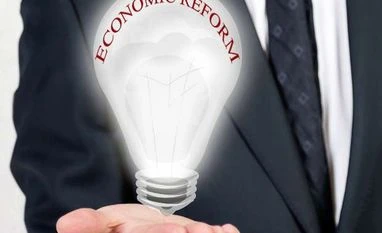As the government nears its two-year mark in office, global financial services major DBS on Thursday said the reform agenda has been "broad-based, granular and incremental".
According to DBS, there was notable progress on reforms agenda at the recently concluded Parliament session, but some of the important reforms like goods and services tax (GST) Bill are still in the pipeline.
"Pulling together these executive reforms and the recent bankruptcy code, progress on the broader reform agenda has been notable," DBS said in a research note.
Amongst the 10 bills that were passed by both houses in second half of the session, the economically notable ones included the Mines and Minerals Bill and the Insolvency and Bankruptcy code.
Amongst the non-legislative changes, DBS said that the amendments to the India-Mauritius tax treaty is a "positive", which aims to plug tax loopholes and control evasion.
"Incremental transition will allow investors to digest the new guidelines, while lowering tax distortions is a structural boost to the economy," DBS said, adding that long-term investments are expected to remain undeterred given the economy's growth potential, improving macros and better risk profile.
Also Read
The other important reform waiting in the pipeline is the GST, which might be visited in the next session in July-August, the report said.
The BJP-led NDA government assumed office on May 26, 2014, with a thumping majority in the Lok Sabha, but some key Bills, including the one on GST, have been stuck in the Rajya Sabha due to opposition from some other parties, mainly Congress.
According to the report, the contentious land and labour laws are also expected to gain traction at the state level.
)